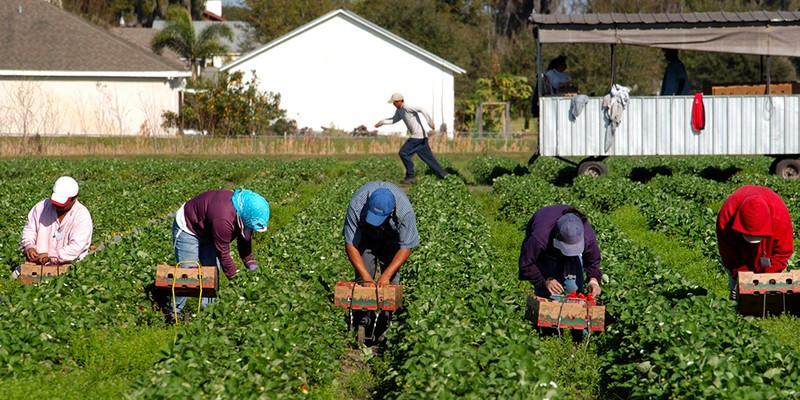According to a forecast by the Recruit Works Institute, Japan may be short of more than 10 million workers by 2040, the time when people born during the post-World War II population boom turn 65 or older. Except for Tokyo, all localities in Japan will suffer labour shortages. 18 out of 47 prefectures and cities in Japan, will have a labour shortage rate of more than 20%. The Kyoto, Niigata and Nagano prefectures rate is even higher than 30%.
In Canada, the agricultural sector is at risk of experiencing labour shortage shocks, due to a wave of farmers’ retirement.
According to a report by the Royal Bank of Canada (RBC) Climate Action Institute, two out of every five farm operators in Canada will retire within the next 10 years. About two-thirds of producers do not have a succession plan in place. Meanwhile, 66% of farmers do not plan to continue with the profession, leaving farms and nurseries in Canada short of about 24,000 workers, over the next 10 years.
A survey conducted in Germany at the beginning of 2023, showed that more than half of companies in Europe’s largest economy struggled to solve the problem of human resources. Germany used to rely on labour sources from other member states of the European Union (EU), but this human resource is starting to become scarce. The Institute for Employment Research (IAB) in Nuremberg, Germany, explains that Germany is no longer attracting workers from other countries as before because incomes in other EU member states have increased and these countries themselves are also facing labour shortages.
In the context of a shortage of domestic workers, the supply of labour from abroad is considered an effective solution to fill the vacancies. Countries actively improve regulations in the immigration system to become more attractive destinations for foreign workers.
On April 21, the Japanese government will introduce a new and simpler system for issuing high-skilled visas to foreign workers. Candidates with a certain score, under the scoring system based on education, length of employment, and income, will be granted a skilled visa for a period of 5 years and may receive a visa for an unlimited stay after only 3 years.
Canada allows international students who have graduated and have a work permit that expires in 2022 and 2023, to extend their permit for an additional 18 months. International graduates are becoming an important immigrant workforce in Canada. The easing of regulations allowing international graduates to stay and work will also help these foreign workers have more time to accumulate work experience in Canada, thereby increasing their ability to meet conditions to be able to become permanent residents.
One of the key reforms in Germany’s new draft immigration law is to remove barriers for migrants to Germany, especially those from other countries outside the EU, according to the Federal Ministry of Labour and Social Affairs. According to the draft, foreigners can apply for citizenship after 5 years of residence in Germany, instead of 8 years. Those with special efforts to integrate into society, such as fluent German, will be eligible to apply after only 3 years.
The International Labour Organisation (ILO) emphasises that foreign workers are an important driver of economic growth and development, in both countries of emigration and immigration. The introduction of more liberal immigration policies by countries contributes to safer and more orderly migration flow. In addition, comprehensive and effective care and protection of the basic rights of immigrants must also be upheld, as moral and legal obligations in attracting foreign workers.
















